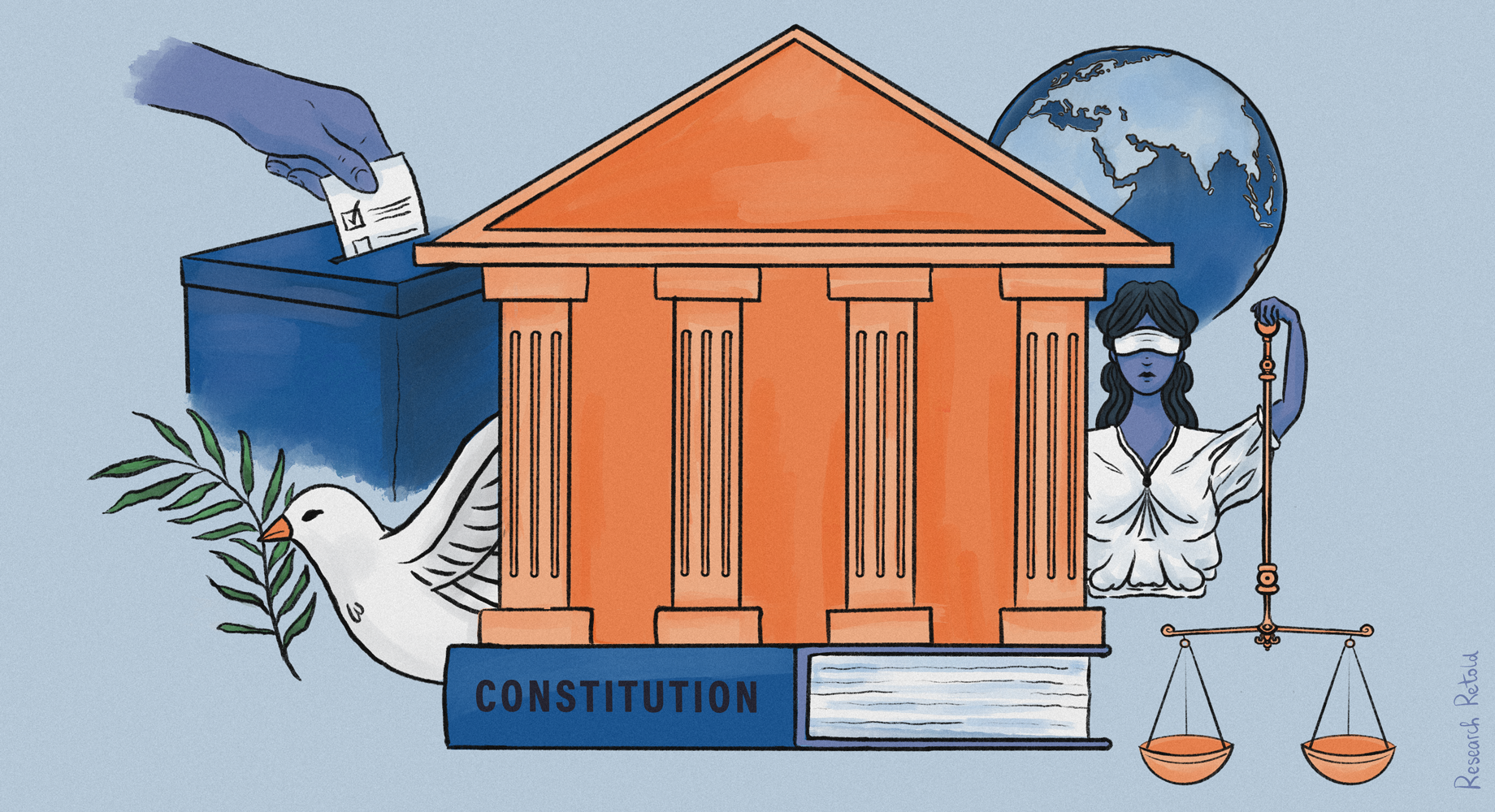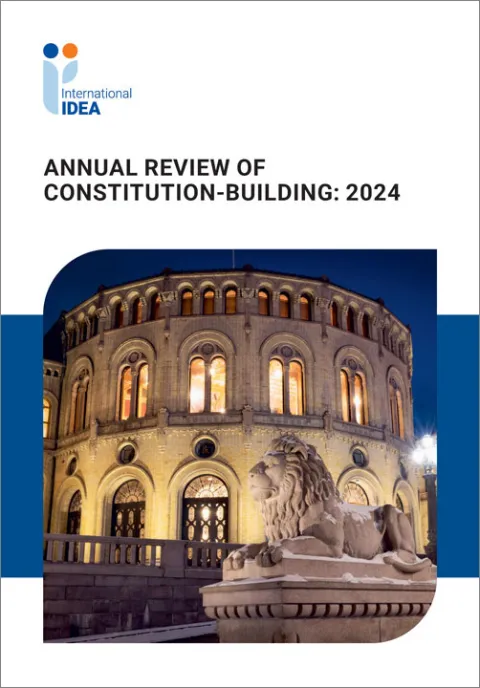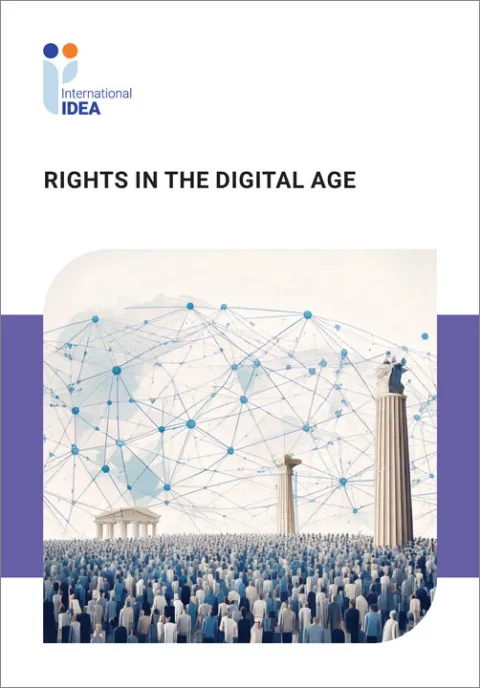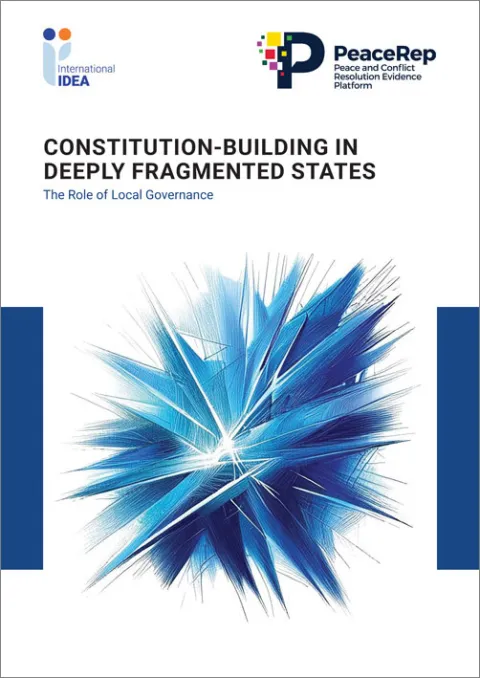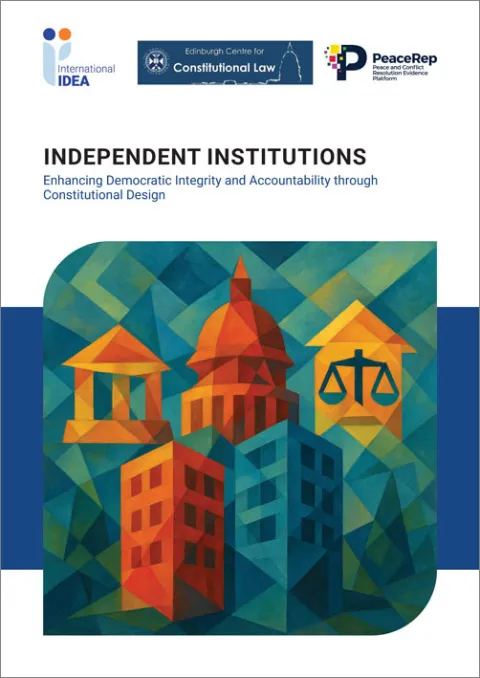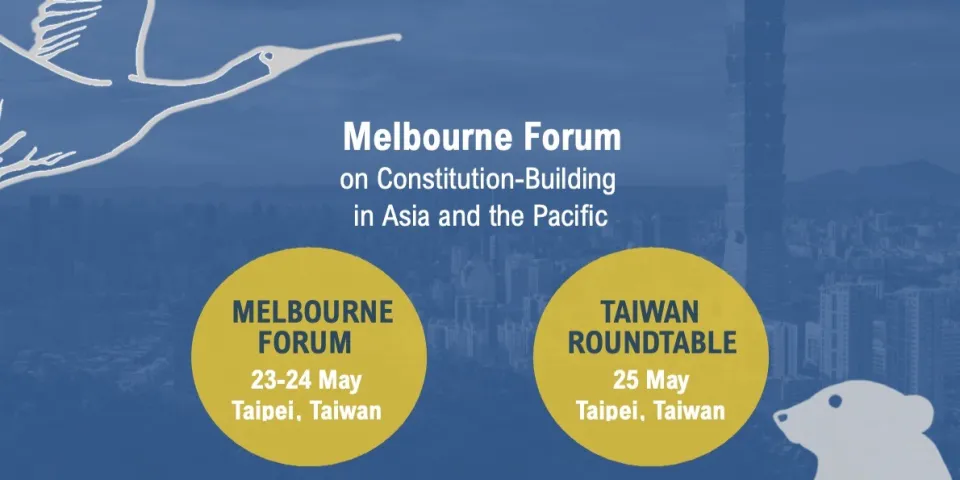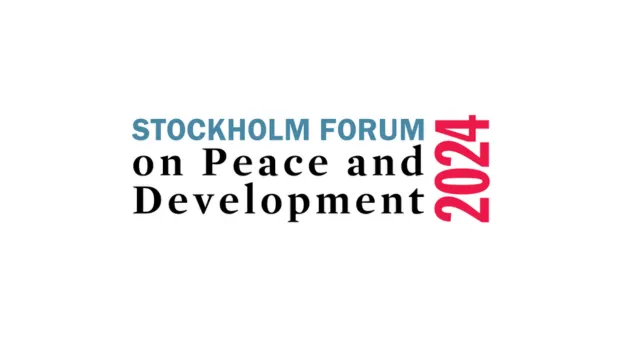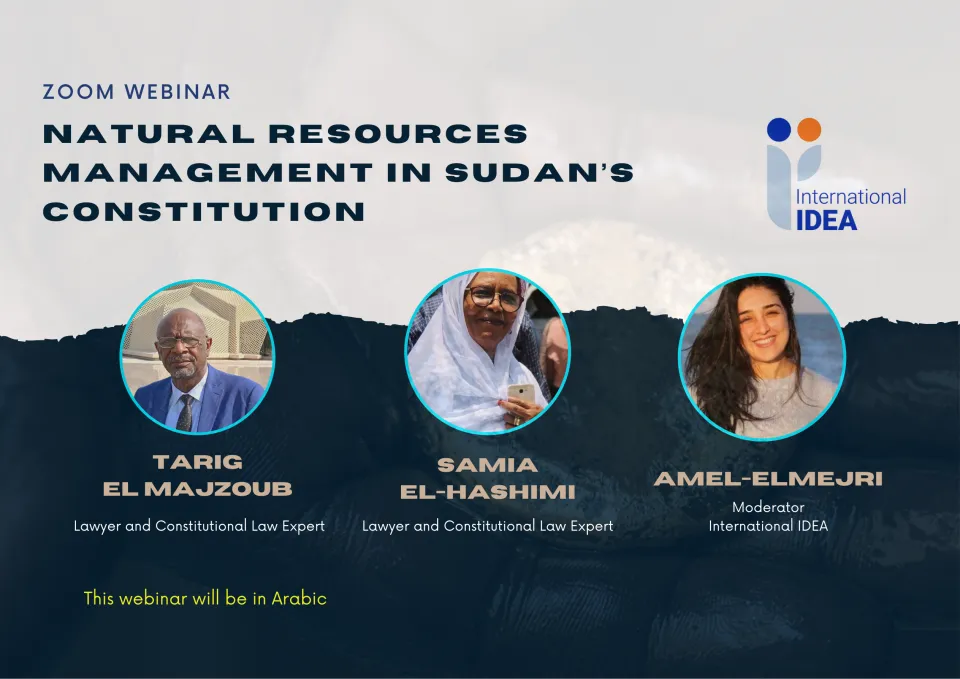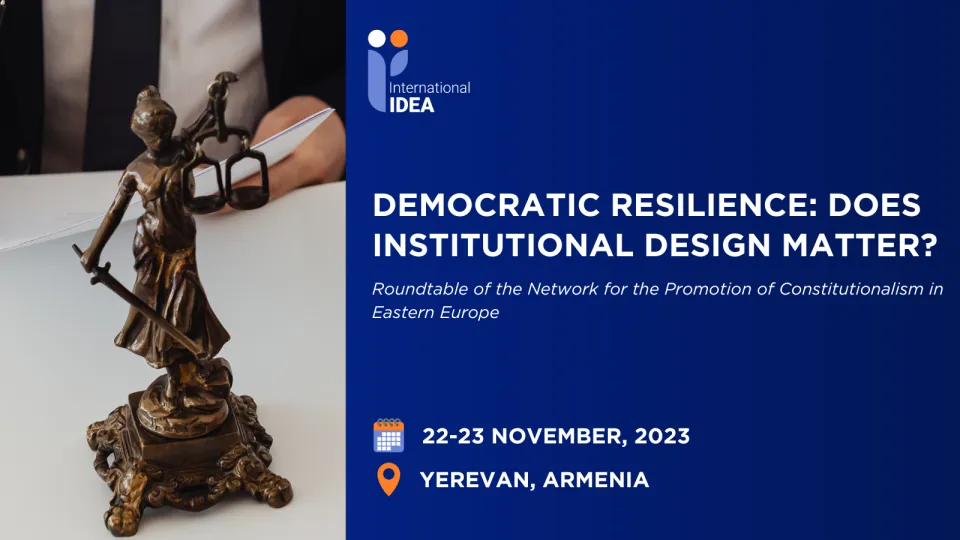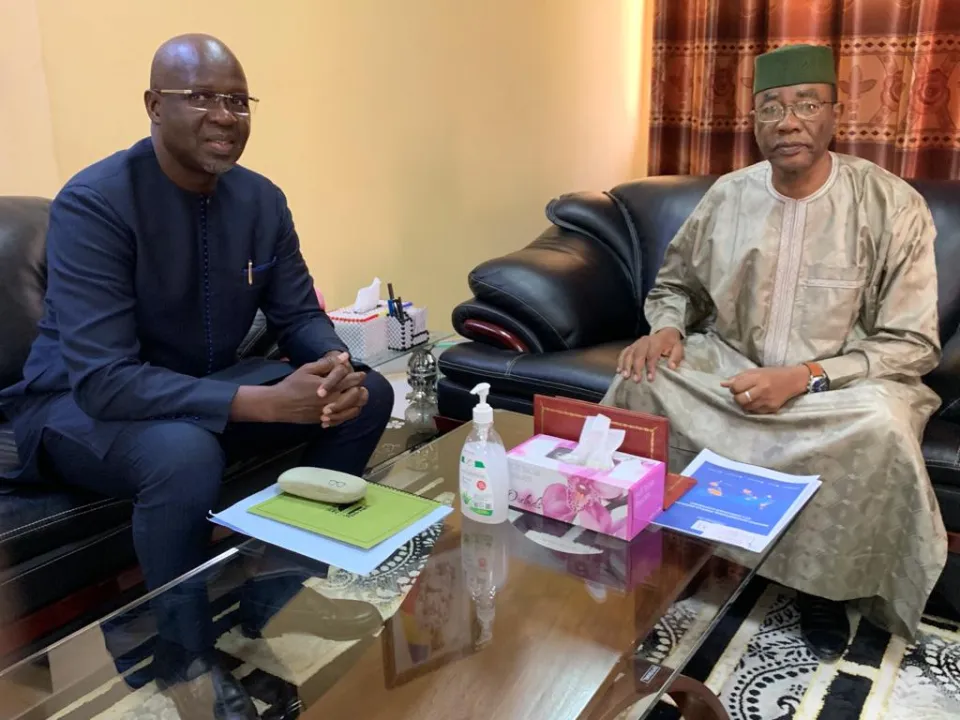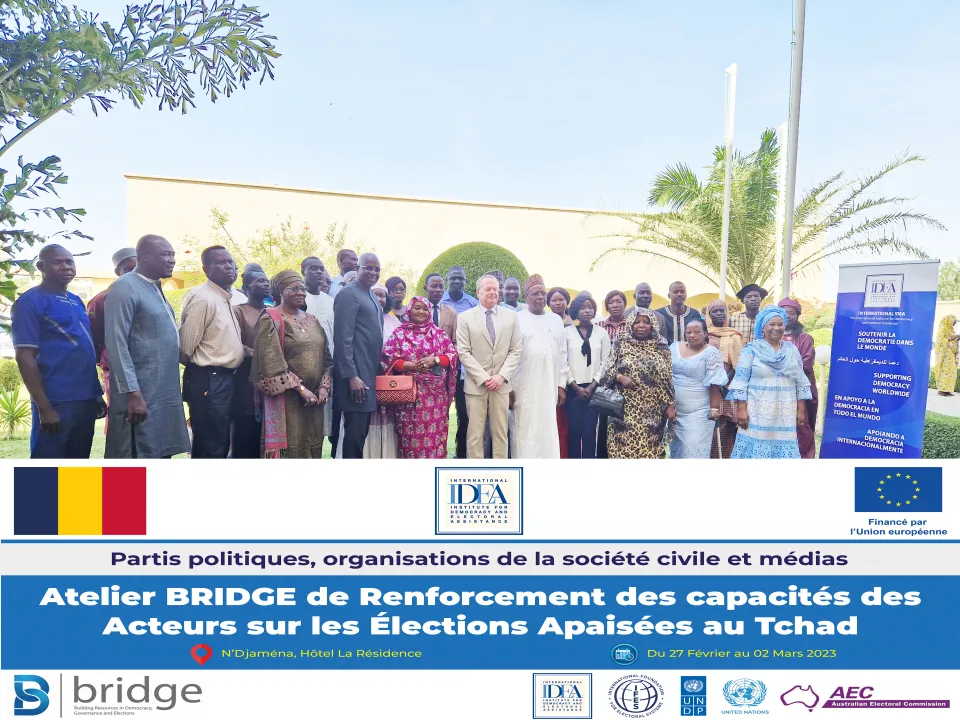Annual Review of Constitution-Building: 2018
International IDEA’s Annual Review of Constitution-Building provides a retrospective account of constitutional transitions, the issues that drive them and their implications for national and international politics.
This sixth edition covers events in 2018 and includes articles on constitutional events in several regions of the world where International IDEA is active. These are loosely themed around the challenges of cooperation and coordination in constitutional politics—between majorities and minorities (in Burundi and Comoros, in Bolivia and Colombia, and in the Commonwealth Caribbean), between coalition partners in constitutional change processes (in Malaysia, the Maldives and Sri Lanka) and between external actors (in Libya, South Sudan and Yemen).
Writing at the mid-way point between the instant reactions of the blogosphere and academic analyses that follow several years later, the authors provide accounts of ongoing political transitions, the major constitutional issues they give rise to and the implications of these processes for democracy, the rule of law and peace.
Details
Staff authors
Contents
Preface
Introduction
1. Constitutional referendums and consociational power sharing: strange bedfellows?
2. Coalitions for constitutional change: Sri Lanka’s constitutional crisis and the Maldives’ 2018 elections
3. Constitution-building and political change: recent lessons from Malaysia and Sri Lanka
4. Her Majesty’s precarious opposition: ‘clean sweep’ elections and constitutional balance in Commonwealth Caribbean states
5. Conflict, constitutions and the international community: third-party interests as impediments to political settlement formation and effective constitution-building
6. Participatory mechanisms and democratic dialogue in Latin America
About the authors
About International IDEA
Give us feedback
Do you have a question or feedback about this publication? Leave us your feedback, and we’ll get back to you
Send feedbackAnnual Review of Constitution-Building: 2018
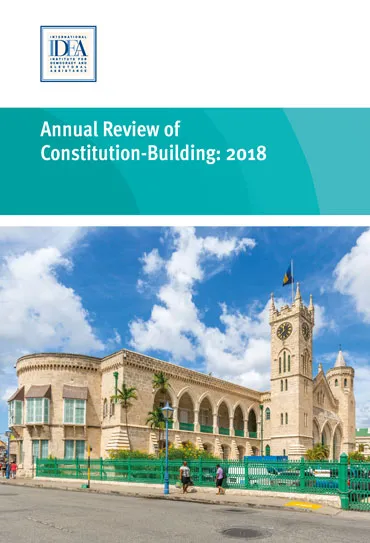
| Total views | 6273 |
|---|---|
| Downloads | 31 |
| Rating |
Staff authors
Give us feedback
Do you have a question or feedback about this publication? Leave us your feedback, and we’ll get back to you
Send feedback